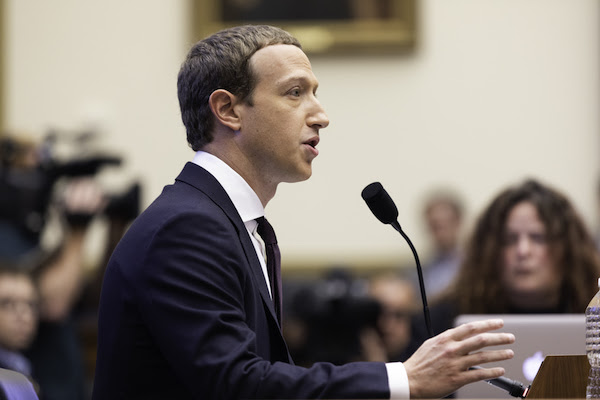- On Wednesday, the CEOs of four of the country's biggest tech companies appeared before the House Judiciary antitrust subcommittee to testify as part of a long-running congressional investigation into the power of Big Tech. [The Verge / Makena Kelly]
- It’s the first time all four CEOs — Facebook’s Mark Zuckerberg, Amazon’s Jeff Bezos, Apple’s Tim Cook, and Google’s Sundar Pichai — have appeared together, and the first time Bezos has testified at all. [Wired / Gilad Edelman]
 - The subcommittee’s 13-month investigation, which parallels similar probes by the Federal Trade Commission and the Justice Department, focused on potential anti-competitive or monopolistic practices by Big Tech. [NYT / Cecilia Kang, Jack Nicas, and David McCabe]
- Though the investigation was bipartisan, a Tuesday memo ahead of the hearing made clear that the parties have very different complaints with Big Tech. While Democrats are primarily focused on antitrust concerns, Republicans are more worried about alleged anti-conservative bias in Silicon Valley. [Politico / Betsy Woodruff Swan, Cristiano Lima, and Leah Nylen]
- All four CEOs opened the hearing with a defense of their respective companies, but lawmakers pressed them on a range of topics, including allegations of stifling competitors and stealing content. [CNET / Ben Fox Rubin]
- In particular, Rep. Jerry Nadler, who chairs the full Judiciary Committee, produced emails from Zuckerberg suggesting that Facebook’s decision to buy Instagram may have been driven primarily by concerns about competition. [The Verge / Casey Newton and Nilay Patel]
- As CNBC’s Lauren Feiner points out, Bezos took a different tack than the other CEOs throughout the hearing: Instead of denying, he “responded with surprise and concern to allegations made about Amazon.” [CNBC / Lauren Feiner]

-
Bezos 'can't guarantee' Amazon never used seller data to make its own products
The heart of Wednesday's hearing was about whether the tech companies exploit their market dominance to squash competition to juice their own products and services.
Critics of Amazon have long pointed to one alleged instance of that: when Amazon notices a third-party product is selling well on its site and uses that information to launch its own private-brand alternative, which critics say Amazon promotes over rivals.
Ever since the Wall Street Journal earlier this year revealed that Amazon was scooping up data from independent sellers and using it to create its own competing products, Amazon executives have categorically denied it.
On Wednesday, that changed.
Rep. Pramila Jayapal, D-Wash., whose district includes Amazon's headquarters, asked Bezos point blank: Does the company use the data it collects from other sellers on the platform for its benefit?
"I can't answer that question yes or no," Bezos said. "We have a policy against using seller-specific data to aid our private label business, but I can't guarantee you that that policy has never been violated."
It was the first time Amazon acknowledged that the $1 trillion company may be misusing data to edge out independent sellers. Bezos said Amazon is conducting an internal investigation into the matter.
Jayapal noted that Amazon has access to information about consumer habits, sellers' pricing and inventory data — a trove of details that could be ripe for abuse if used to make business decisions about Amazon's own products.
"You can set the rules of the game for your competitors, but not actually follow those same rules for yourself," Jayapal said.
According to subcommittee chair Rep. David Cicilline, a final report — informed by the investigation and by Wednesday’s hearing — will be forthcoming, potentially as soon as late August. [Washington Post / Cat Zakrzewski]
But ultimately, Recode’s Peter Kafka argues, Wednesday’s hearing, while historic, was more theater than anything. Change may come — but if it does, the partisan divide in Congress means it probably won’t be because of new legislation or rulemaking. [Recode / Peter Kafka]
|
|